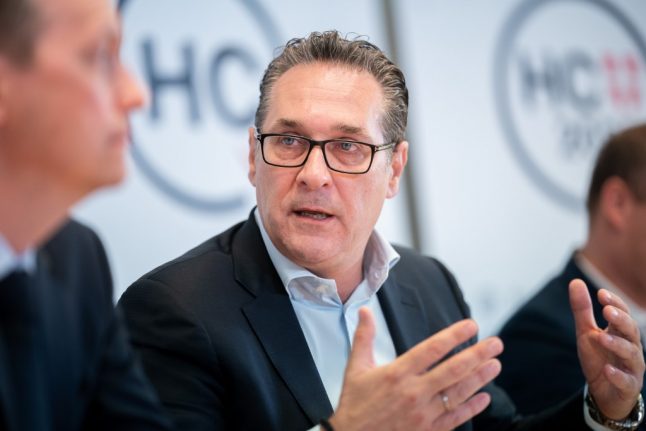Partial results on Sunday evening showed Strache's new party secured just 3.6 percent of the vote, short of the five-percent hurdle to sit on the city council, while the centre-left defended its historic hold on the mayor's office.
Support for Strache's former party, FPOe, plunged 23.3 points compared with 2015, receiving just 7.7 percent of votes, according to a partial count compiled by the SORA polling agency.
The FPOe was kicked out of the federal government last year after the publication of hidden-camera footage showing then-leader Strache discussing shady backroom deals with a woman claiming to be a wealthy Russian.
In the recording, he said the far-right party receives hundreds of thousands of euros in illicit funding and proposed a plot for her to buy Austria's largest newspaper and turn it into an FPOe mouthpiece in exchange for lucrative public contracts.
Known as “Ibiza-gate” for the film's recording on the Spanish party island, the scandal left the FPOe internally divided and slashed its support at subsequent parliamentary elections to 16 percent.
Chancellor Sebastian Kurz formed a new coalition government with the Greens, while Strache is under investigation for allegedly spending hundreds of thousands of euros of party funds on private expenses from Chanel handbags
and private jet flights to dog food.
Some commentators had previously seen Kurz's attempt to tame the extremes by allying with them as a potential blueprint for European centre-right parties, confronted with a massively strengthened far-right in the wake of the
2015 migrant crisis.
Known as “Red Vienna” for its decades of left-wing rule, the capital on Sunday handed incumbent social-democratic mayor Michael Ludwig 42.1 percent of the vote, adding 2.5 points and leaving coalition options open with the
Greens, conservatives or liberals.
Ludwig has already ruled out working with the FPOe.
Vienna is Austria's capital and one of the country's nine federal states. Sunday's election saw voters pick their city council and the mayors of the city's 23 districts.
Final results will be published on Monday.



 Please whitelist us to continue reading.
Please whitelist us to continue reading.
Member comments